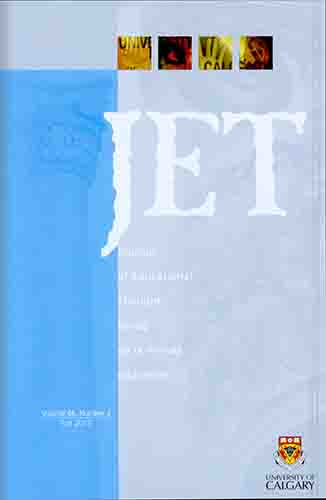English Language Learner a Term That Warrants Scrutiny
DOI:
https://doi.org/10.55016/ojs/jet.v46i2.52203Abstract
ELL is the most common term used in the United States to describe learners whose home language is not English, possess limited proficiency in English and are in the process of adding English to their linguistic knowledge base. Over 10% of the total US school age learner population of 50 million students has been identified as possessing limited English proficiency and are designated as ELLs.1 I contend that the term ELL is problematic and should be retired because it promotes a nativist, anti-immigrant and anti-bilingual or multilingual agenda. This article begins with the historical contexts that have contributed to the widespread adoption of the term ELL. I offer several alternative terms that may more accurately reflect a philosophical orientation that celebrates both diversity and multilingualism with EAL being the recommended choice.
Downloads
Downloads
Published
Issue
Section
License
The Journal of Educational Thought retains first publication rights for all articles. The Journal grants reproduction rights for noncommercial educational purposes with the provision that full acknowledgement of the work’s source be noted on each copy. The Journal will redirect to the appropriate authors any inquiries for further commercial publication of individual articles. All authors wishing to publish in JET will be asked to fill in and sign a Consent to Publish and Transfer of Copyright agreement.
Authors must affirm that any submission to JET has not been and will not be published or submitted elsewhere while under considration by JET.

